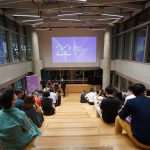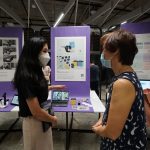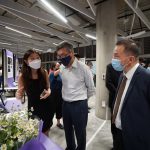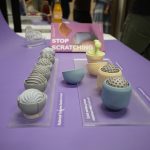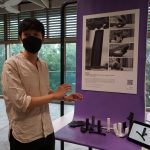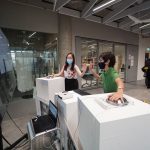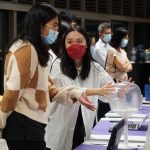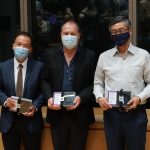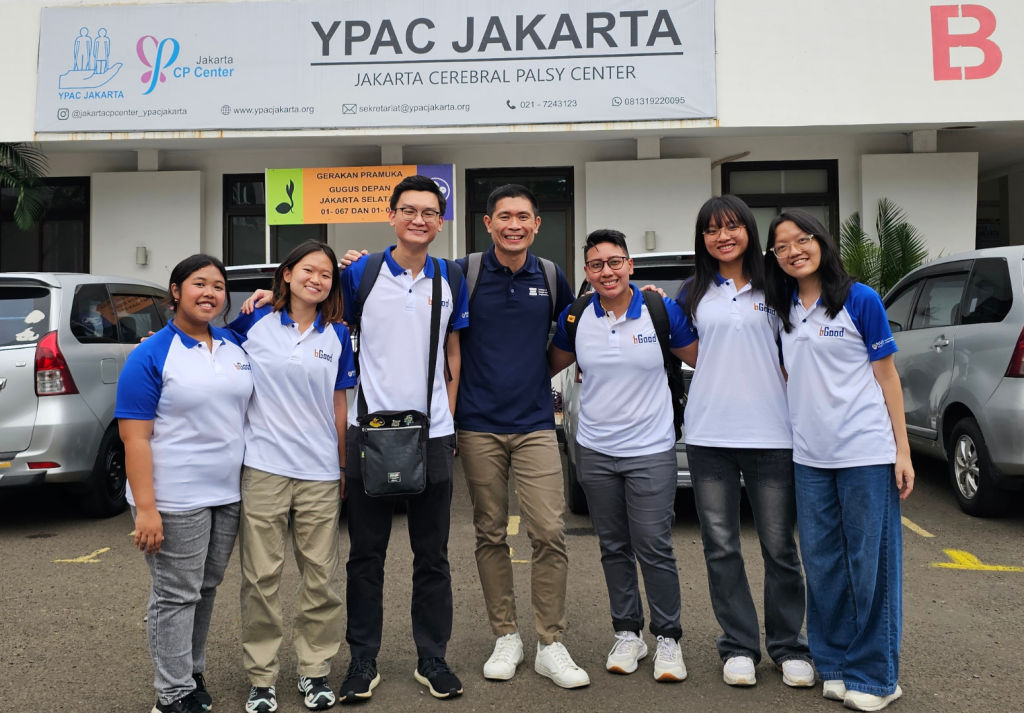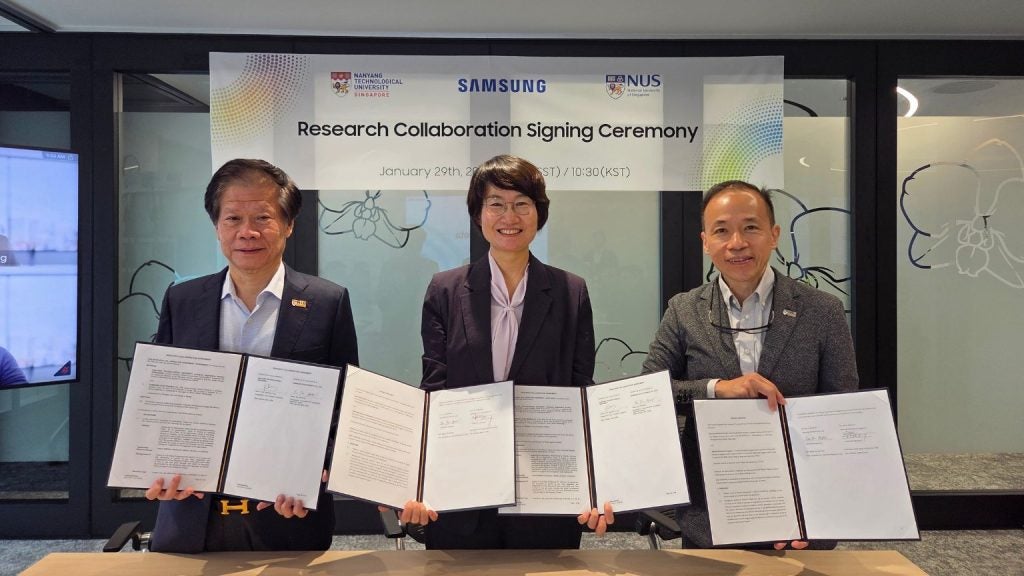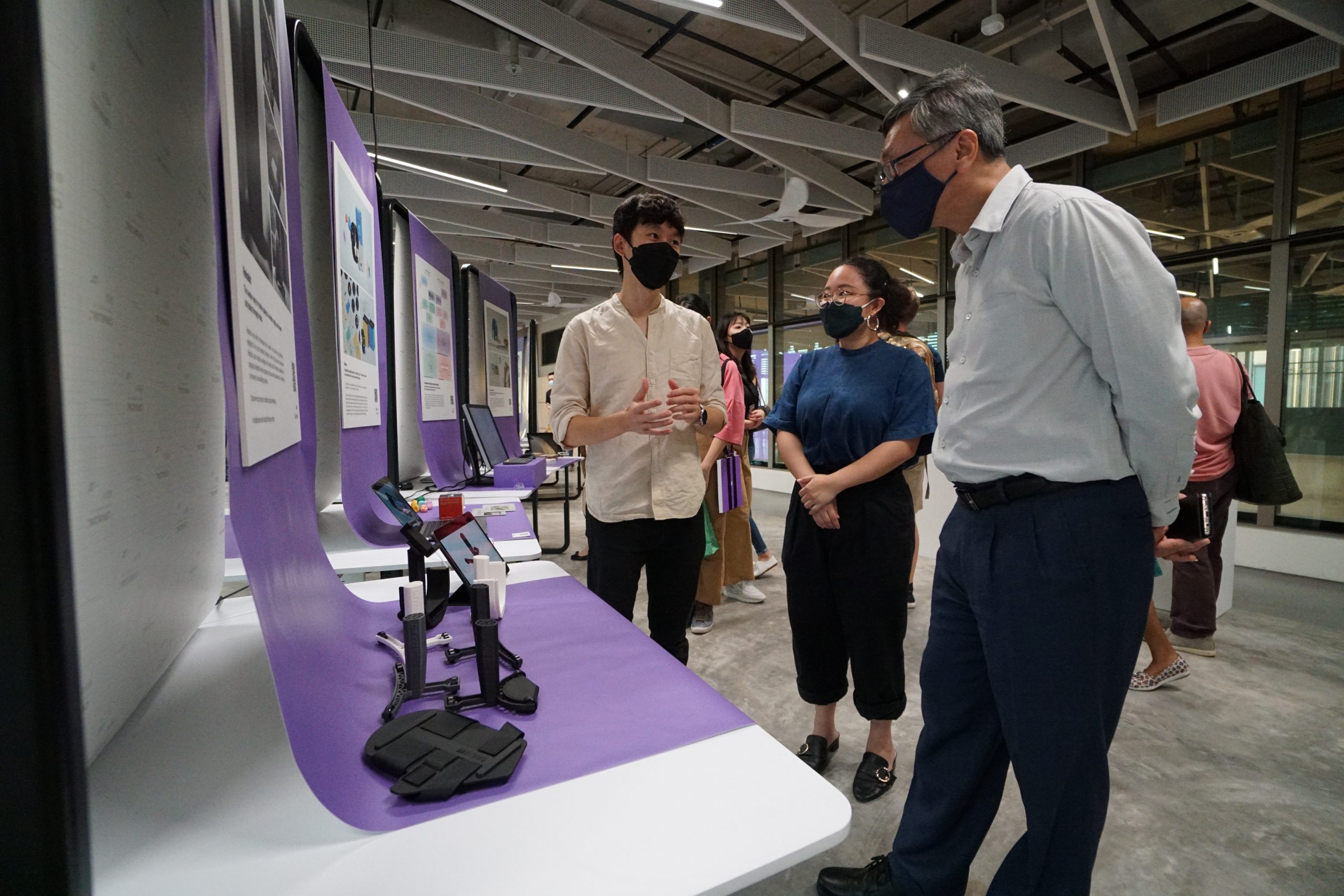
The Division of Industrial Design (DID) at the NUS College of Design and Engineering has formally launched its annual Gradshow, the first in-person physical event after two years when the showcase had to be held virtually due to the pandemic.
This year's cohort of 48 graduating students presented their work to industry insiders and guests at Gradshow 2022's opening night on June 3.
Associate Professor Christian Gilles Boucharenc, Head of DID, thanked colleagues and students for their hard work during his welcome speech. He added that "the Division of Industrial Design will continue to pursue its efforts" in striving for excellence and success ahead.
Later, giving the opening address, Professor Aaron Thean, Dean of the College of Design and Engineering, congratulated students for their outstanding efforts and perseverance in overcoming the challenges brought by the pandemic.
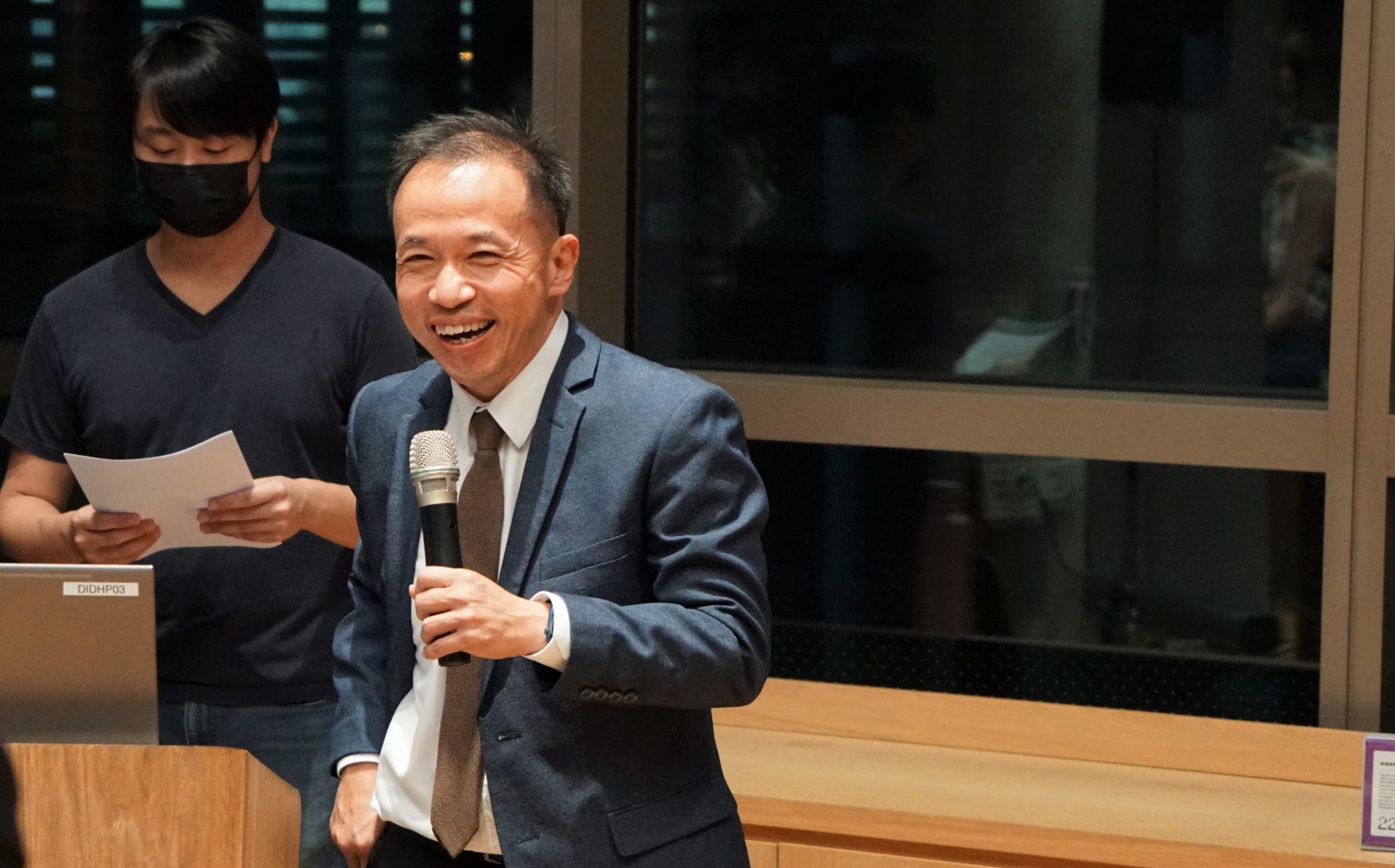
"DID epitomises a key pillar within CDE", he said, adding Industrial Design "is one of those rare programmes where you actually train creativity" as it helps students understand the needs of people and use creativity as a bridge to help address those very needs.
After both speeches, graduating students presented their respective exhibition booths to visitors.
Photo Gallery
Click thumbnails to view
"Rehabit was inspired by the challenges my dad faced during stroke therapy", John said. He added that he chose stroke recovery as a topic for his thesis to help aid in his father's recovery.
Seeing the impact Rehabit had on patients helped John realise "how design can really make a difference in someone's life."

The array of projects ranged from socially transformative designs to improve people's lives, to projects that push new frontiers in design exploration and research.
One project that was inspired by personal challenges is Rehabit, a range of rehabilitation therapy tools for stroke patients, designed by graduating student John Tay.
The theme of using personal challenges as a catalyst to create a positive social impact is also evident in Koh Bei Ning's project, Rollerball Itch Relief. As someone who has suffered with eczema for years, Bei Ning knew better than anyone the struggles that comes with this medical condition.

"My role as both a designer and a patient put myself in a good spot to balance perspective between medical theory and patients' reality", Bei Ning said. This led to the development of Rollerball Itch Relief, a tool that helps relief the itchiness that eczema patients experience without causing any scratches or marks.
As for student Aderes Chua, the rapid rise of digital payment made her ponder over a question: would children of this generation be able to comprehend the value of financial literacy without the physical touch of coins?
This gave birth to her project, Tangibilising Digital Payment for Children, where the core aim is to educate children on the importance of understanding "their spending and savings from an early age by utilising this ecosystem."
While every exhibition booth had its own unique theme, it was united by the purpose of using design to improve the lives of others.



